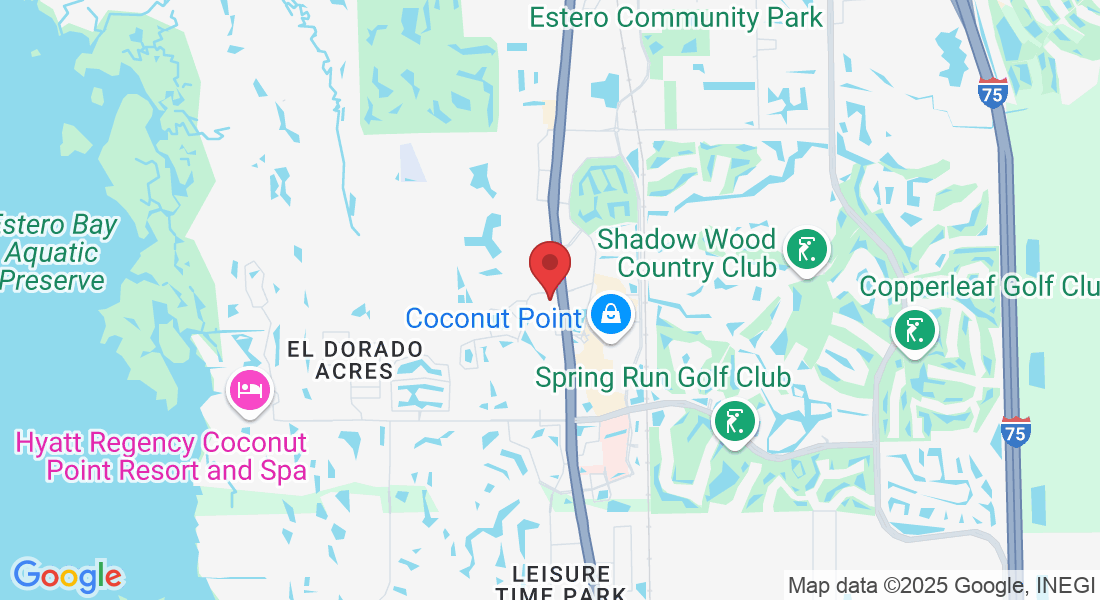Call Us: (239) 427-1455
Memory Care
Help your loved one living with memory loss live a rich, full life. Gulf Coast Memory Care provides a warm and enriching environment for people with Alzheimer’s or another memory loss illness.
This site is for families seeking memory care services. For employment inquiries, visit our Indeed page.
All Memory Care, All The Time
We understand the unique journey of individuals facing Alzheimer's, dementia, and other memory impairments. Our skilled, caring team crafts personalized care plans that honor the individuality of each resident, ensuring they feel seen, supported, and cherished.

100% Focused on Caring

Professionally Trained Employees

Safe and Secure Environment

Thoughtful and Social Activities

Passion-Driven Care

A Family of Professionals

Supportive & Loving Home

Engaging Connections
We understand that choosing the right memory care community is a deeply personal decision. Located next to Coconut Point Shopping Center in Estero, Gulf Coast Memory Care combines expert dementia care with the convenience of a familiar, accessible location.
Our approach centers on personalized care plans tailored to your loved one's unique experiences and preferences. In our warm, home-like setting, we provide dignity, joy, and belonging while offering families peace of mind through compassionate, professional care.
Let us help you navigate this journey with the care and respect your loved one deserves.
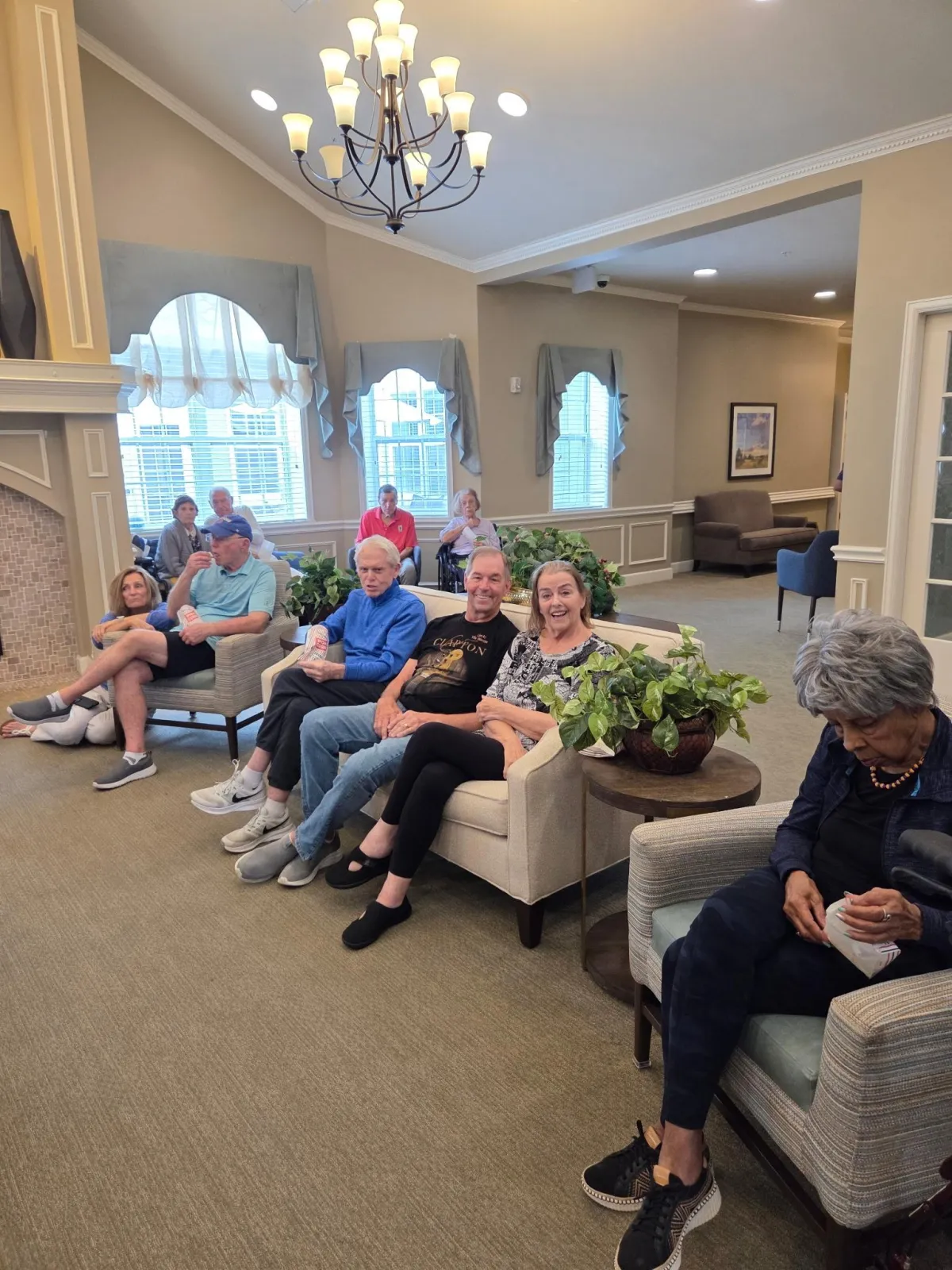
Is It The Right Time For Memory Care?
Learn more about memory care and get personalized results in this quick 4-5 minute survey.
How We Serve You
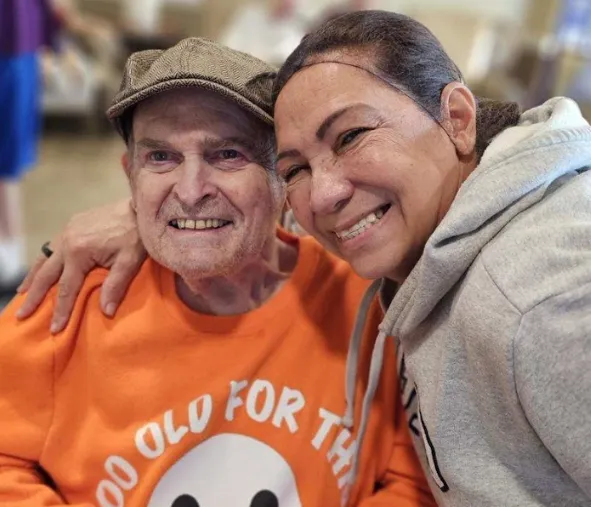
Life At Gulf Coast
Each day is filled with purpose, connection, and joy. Our engaging routines help residents stay active and happy in a warm, supportive community. Read our blog on Our Rhythm of Life!
- 8:00 AM Breakfast
- 9:00 AM Morning Edition
- 9:30 AM Movin' & Groovin'
- 10:30 AM Cognitive Connection
- 12:00 PM Lunch
- 1:00 PM Mindful Moments
- 2:00 PM Creative Hour
- 3:00 PM Social Hour
- 4:00 PM Afternoon Movement
- 5:00 PM Dinner
- 6:00 PM Evening Wind-Down
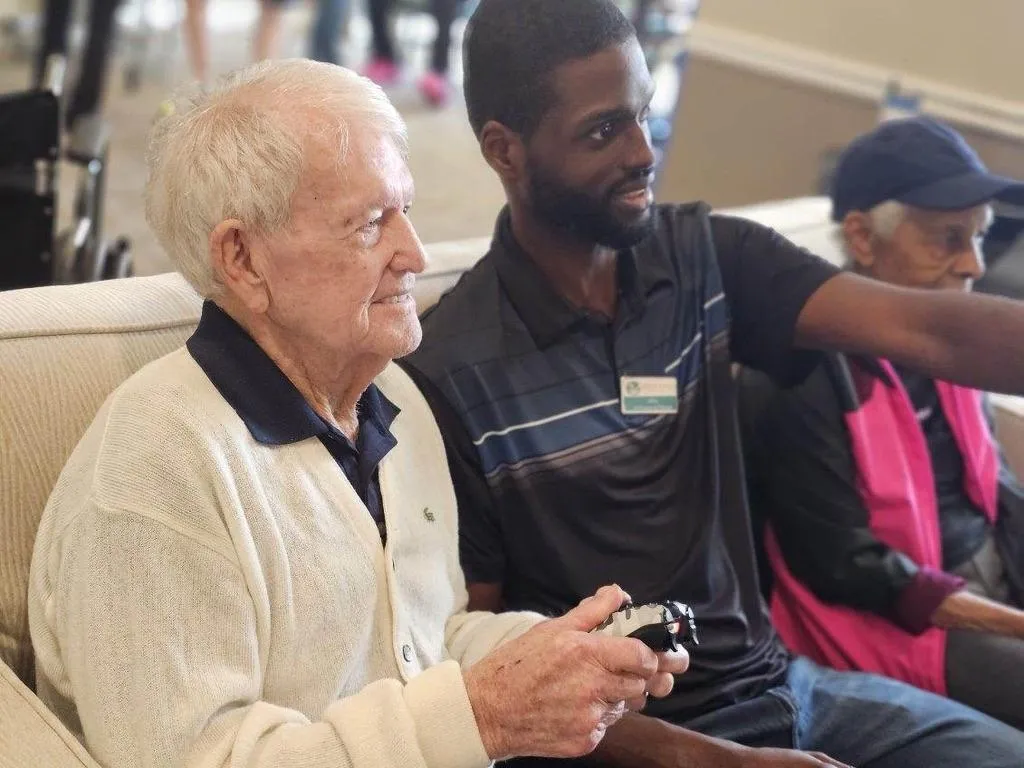
A Caring Team That's Here For You When You Need It
By working closely with each resident and their family, we can help your loved one build new connections, continue to grow as a person, and find new joy and fulfillment that may not have seemed possible.
We walk the journey with you and your family, helping you adjust to the changes occurring during this transitional period in your loved one’s life.
"Our passionate staff is trained to care for the person who shows up today. Together, we enrich the life of each person who calls Gulf Coast Memory Care their home."
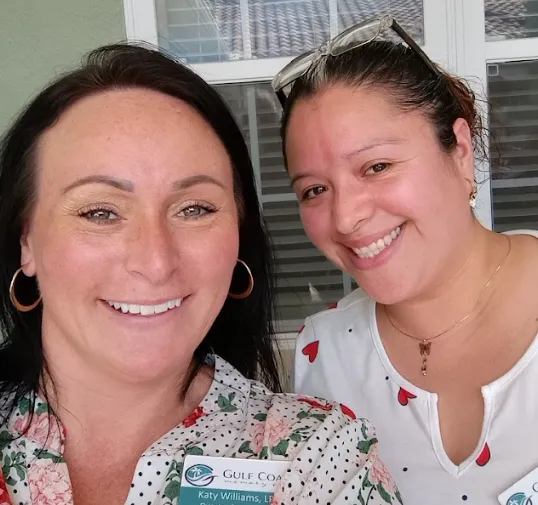
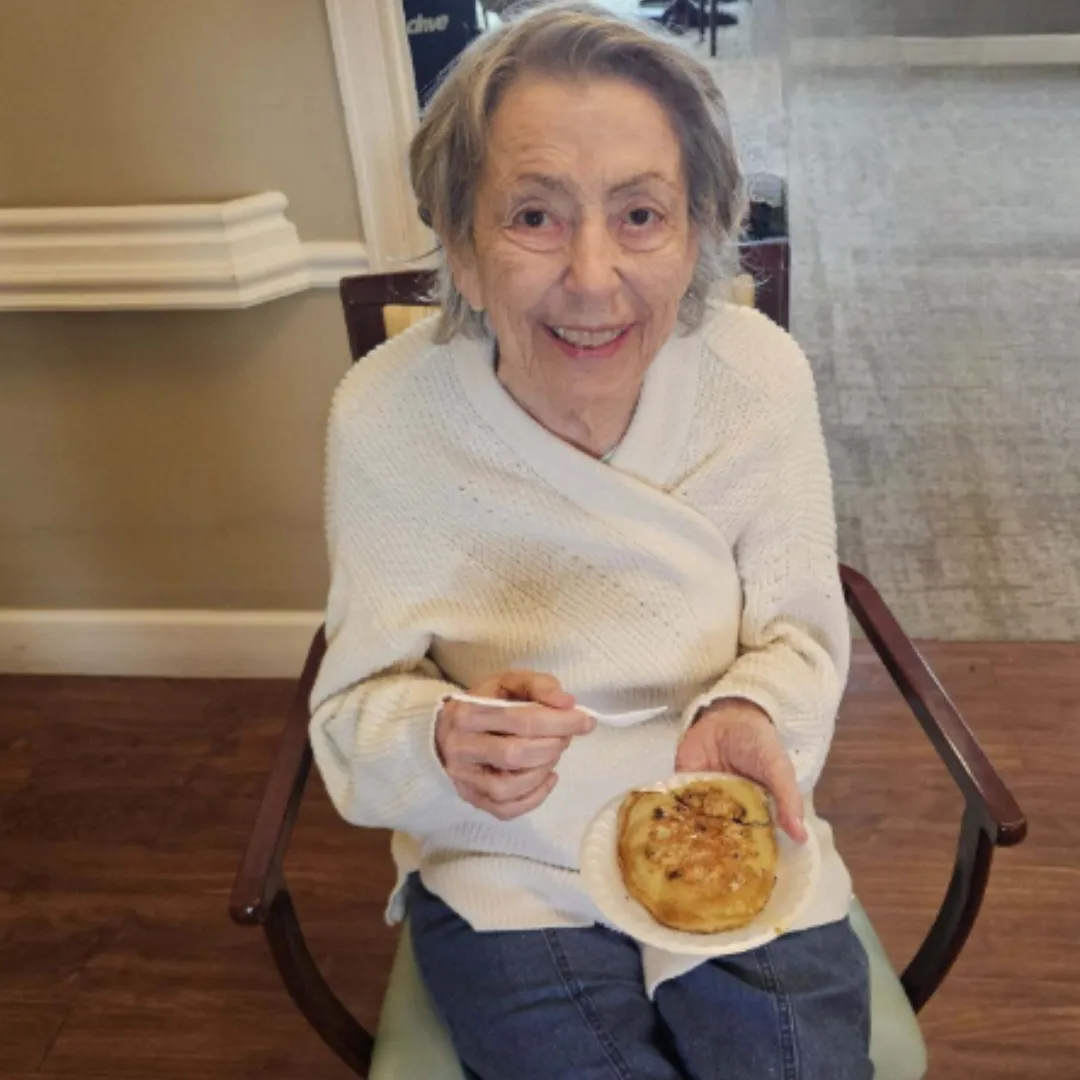
Alzheimer’s & Dementia Support For Your Loved One
Our compassionate caregivers work closely with you and your family to understand your loved one’s unique life story. This personalized approach helps us connect with them on a deeper level, preserving their sense of self while providing care with the utmost dignity and respect.
We create a detailed care plan that outlines their specific needs, including assistance with daily activities. This plan is regularly reviewed and adjusted to ensure they receive the right level of support as their needs evolve.
Improving Respite Care for Families
We’re proud to be the only community to pilot the GUIDE Dementia Benefit Program, a groundbreaking initiative designed to expand access to respite care for families navigating Alzheimer’s and other forms of dementia.
Jen Brady shares how this benefit supports caregivers by offering high-quality, short-term care options while keeping loved ones safe and supported. We believe respite care should be both accessible and exceptional, and this program helps make that possible.
Love From Our Families


My mom moved into her new home a few weeks ago. I was able to visit with her this week while being in Florida and my gosh, I know she is right where she needs to be. Huge shoutout to Jerry, Diana, Paula, Kathy and Apryl. You are real life angels. The energy you bring is above and beyond. To see how you interact with not only my mom, but all the residents, it truly warms my heart. While it is heartbreaking to see my mom battle Alzheimer's, I know she is in the perfect place. She is safe and receiving the care she needs. <3 The place is clean, accommodating and most importantly feels like home. I love that there is a schedule and many activities for the residents to participate in. My mom has loved the painting and coloring
- Bill & Bonny B


Upon entering this beautiful community, I was deeply impressed by the exceptional level of care and compassion demonstrated by all the caregivers. Every member of the team, from maintenance staff to the executive director, significantly contributes to the residents' quality of life. The interior courtyards offer a safe and beautiful outdoor escape for the residents, while the dining area is both elegant and spacious. GCMC stands out as one of the premier memory care centers I have ever visited.
- Bill & Bonny B


Exceptional dedication. Genuine care 24/7, everyone is doing a great job, from Management to the care team. Jerry and Diana are conducting the business, but you can see them walking the hallway and chatting with the residents, literally knowing everyone. There is an engine who works behind the scenes to have the day and night activity running smoothly. Family feeling, warmth, and genuine care, overall, 5 stars. Residents are never alone, there is always a pair of eyes to watch and hands ready to help as needed, but all is done in a certain way, so our loved ones don’t feel any loss of their independence. Beautifully done. The activities are not just lines on paper, everyone is involved. Food is first class.
- Bill & Bonny B
Our Memory Care Amenities
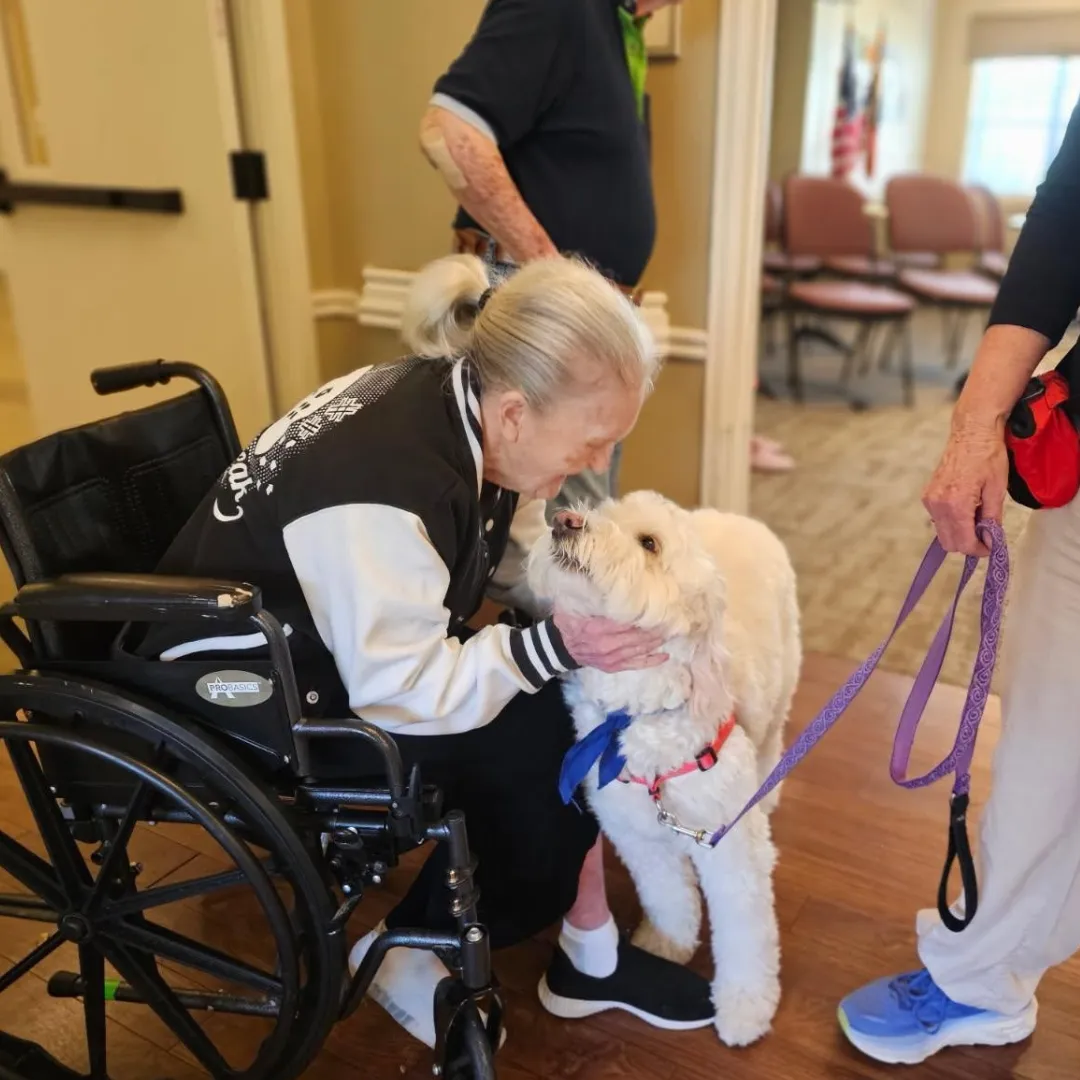
Personalized Engagement for Each Resident
Purposeful Living
Creating a Sense of Belonging
Emotional Support & Personal Growth
Family Involvement
Transparency & Trust
Dementia-Specific Training
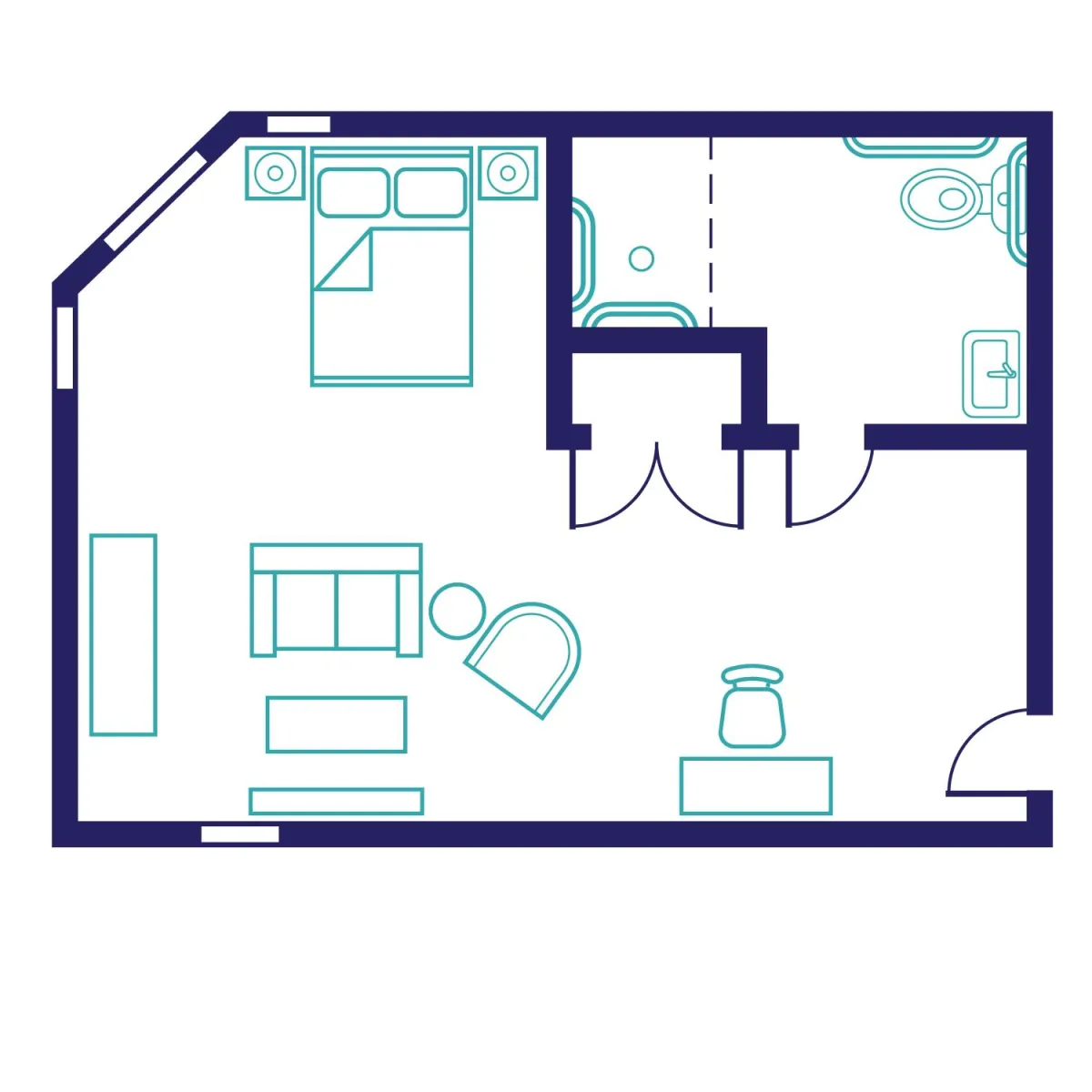
The Edison Suite
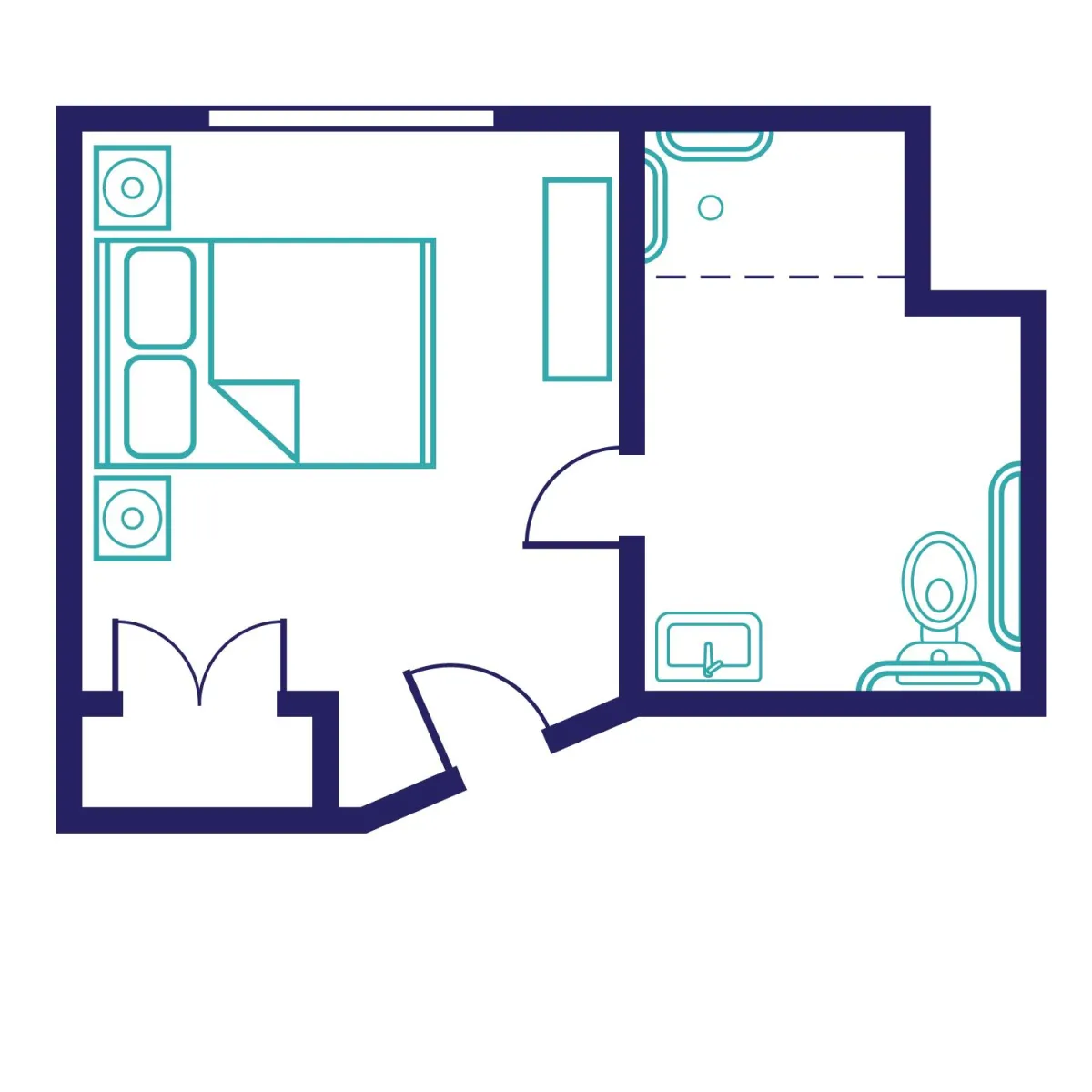
The Magnolia Suite
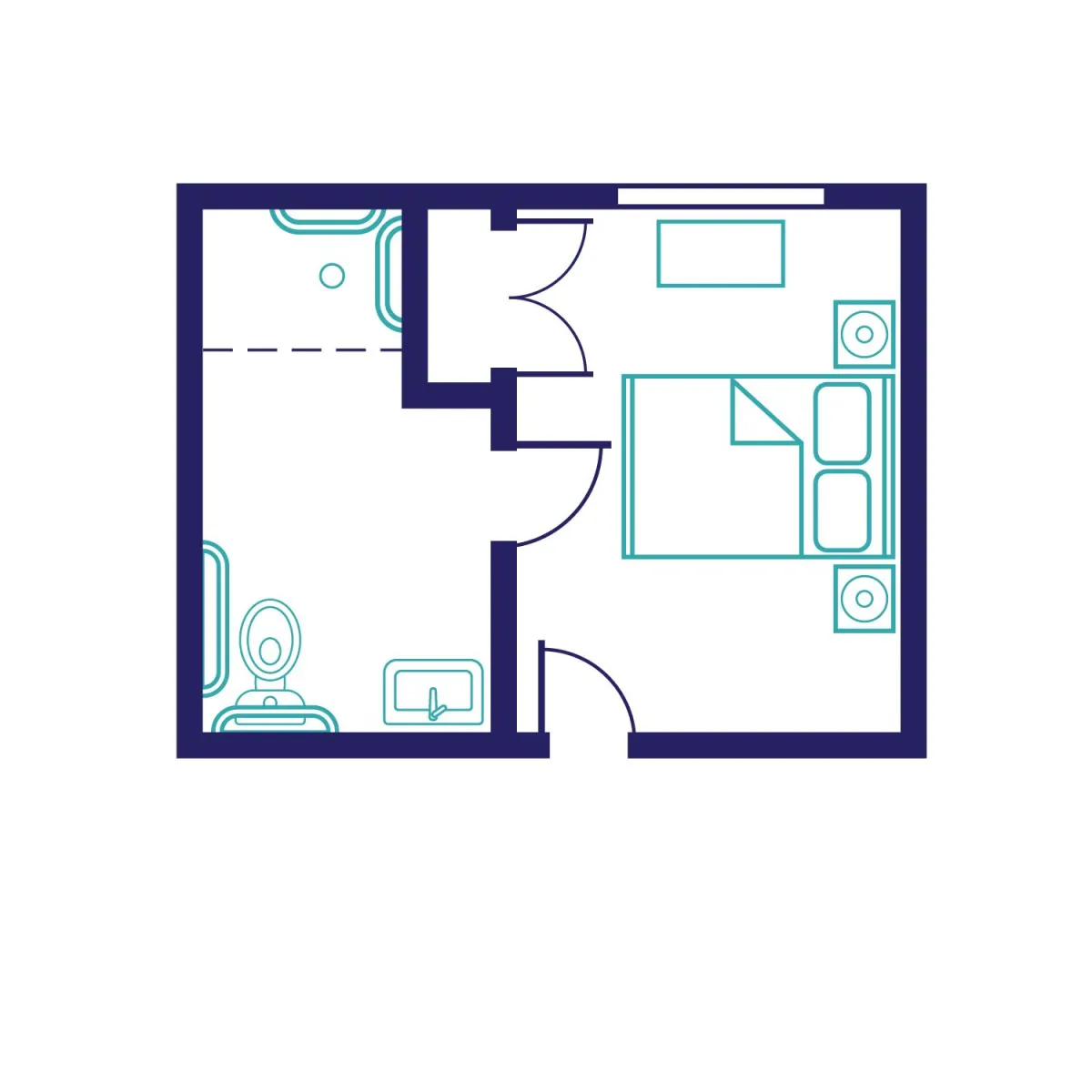
The Sugarberry Suite
Questions?
What is the difference between Alzheimer's disease and dementia?
Alzheimer's disease is a type of dementia. Dementia presents with a loss of thinking, remembering, and reasoning skills. It generally creates problems with a person's daily life and activities. Alzheimer's disease is the most common cause of dementia among older people. Other types of dementia include frontotemporal disorders and Lewy body dementia.
What are the early signs of Alzheimer's disease?
According to the Alzheimer's Association, early signs of Alzheimer's disease vary, though memory problems are often among the first. Other indicators may include challenges with problem-solving, confusion with time or place, difficulty with visual and spatial relationships, new problems with words, decreased judgment, withdrawal from activities, and mood changes. Mild Cognitive Impairment (MCI) can sometimes be an early stage, though not everyone with MCI develops Alzheimer's, and changes in movement and smell have also been linked to MCI.
For more detailed information, please refer to the Alzheimer's Association's page on 10 Early Signs and Symptoms of Alzheimer's.
What are the stages of Alzheimer's disease?
According to the Alzheimer's Association, Alzheimer's disease progresses through several stages: preclinical, early (mild), middle (moderate), and late (severe). The preclinical stage involves brain changes without noticeable symptoms, while the early stage presents with memory problems and other cognitive declines. As the disease advances to the middle stage, memory loss and confusion worsen, impacting recognition of familiar people. In the late stage, communication abilities are significantly reduced, leading to increased sleep, weight loss, difficulty swallowing, and the need for total care.
For more detailed information, please refer to the Alzheimer's Association's page on Stages of Alzheimer's.
What safety measures are in place?
Our community features secure entryways, 24/7 supervision, and fall prevention measures. Staff are trained to handle wandering behaviors and provide compassionate care in a safe, structured environment. In addition, our residents enjoy the benefit of enclosed courtyards, which provide a safe outdoor environment for relaxation and engagement. Our team vigilantly monitor residents 24/7 to ensure continuous monitoring.
Can I visit anytime?
Yes! We encourage family visits to keep loved ones connected.
See our Visitation Policy for more information.
How do you keep residents engaged?
We offer structured daily activities like gardening, creative workshops, cognitive games, and social gatherings. Each program is designed to promote mental stimulation, physical well-being, and emotional connection.
What kind of training does the staff have?
Our caregivers receive specialized memory care training, including dementia communication, behavior management, and safety protocols. Staff also undergo ongoing education to ensure the highest level of compassionate care.
Come Visit Us
We can't wait to hear from you! Fill out our contact form to get started or if you would like to see our community for yourself, schedule a tour here.
Email: [email protected]
Address: 22900 Lyden Dr, Estero, FL 33928

Gulf Coast Memory Care
(239) 427-1455
22900 Lyden Dr, Estero, FL 33928
AL# 12921
Privacy Policy | Accessibility Statement | Visitation Policy

